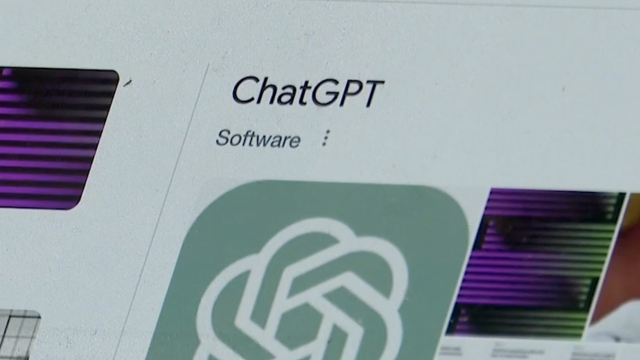Before we talk about AI, here's a question. What is the purpose of school? Is it to memorize information? Is it to prepare kids for the real world? Is it to show students not what to think, but how to think? The teachers we spoke with said your answer to that question is likely a key indicator to your thoughts surrounding AI in the classroom.
Scripps News' spoke to two people: Meghan Tocci, a high school English teacher; and Gary Marchant, a college law professor. Both have spent the summer thinking of how best to utilize AI in their classrooms and both agree its presence is no longer a matter of if, but when.
"I was excited to see the ways it helped me and then turning that and leveraging that into something that can be embraced by students," said Tocci.
For Tocci, her curriculum surrounds comprehension, so she is challenging her students to incorporate AI into their work this year. Whether that's finding new ways to spark imagination, or get the ball rolling on a paper, or taking care of administrative tasks, she says she is grading for understanding which is something AI cannot forge for her students.
"Ultimately, what you see with AI is very pattern-based, so it's not in the business in making an opinion or having a creative connection or structuring an argument that's backed up with interpretation beyond just presenting evidence," said Tocci.
SEE MORE: How is artificial intelligence changing education?
The same goes for Marchant, who teaches at Arizona State University. This month, the institution's law program became the first in the country to allow applicants to openly use AI in their applications. The reason? He says because it's already largely used in the law field.
"It really is important that we figure how to adapt our teaching to basically teach them to practice law in the real world, and that's going to involve using AI in appropriate ways. To understand it's benefits, how it can be used, the good use cases as you mentioned, but also what are the limitations and risks of using it as well?" said Marchant.
At Yale, for example, several courses incorporate AI including Italian, humanities, anthropology and physics. In the university's writing humor course, there's an assignment where students reflect on what elements of writing can be replicated by AI and what elements are unique to a human author. It's the very reason Tocci isn't afraid that students are detracting from their education by leaning into the technology.
"The future is exciting to me because I think about from an equity standpoint, how much access to information can change how people think and it can change their abilities," said Tocci. "If it's leveraged and seen as a way to enhance your own skills or give you a sense of confidence in your own abilities rather than this is going to do the thinking for you. Google doesn't do the thinking for you."
This isn't to say every teacher agrees. Both Tocci and Marchant acknowledge there's a cohort who prefers to keep AI out of the classroom, but they say that won't necessarily curtail its use as they believe this year is the year AI fully integrates itself into learning.
"I think it's going to happen this year. I mean there's no question that most of our students are using this," said Marchant.
Trending stories at Scrippsnews.com




